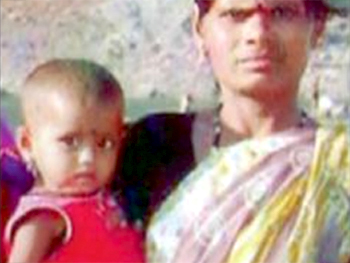Yadagiri, Oct 5: In a shocking incident, a one-and-a-half year old girl was sacrificed by miscreants for the purpose of black magic at Boodinal village of Shahapur taluk in Yadagiri district.
 The victim, Amrita, is the second daughter of Basayya Swami and Lakshmi. The girl, who was sleeping with her mother on Monday night, is said to have gone missing all of a sudden when Lakshmi woke up at around 3 am.
The victim, Amrita, is the second daughter of Basayya Swami and Lakshmi. The girl, who was sleeping with her mother on Monday night, is said to have gone missing all of a sudden when Lakshmi woke up at around 3 am.
The dead body of the baby was found in a well in front of her house on Tuesday morning. Materials used for the witchcraft were also found at the spot. The family members had searched for the girl for a whole day.
Rachaiah, the girl's grandfather, said that she may have been killed in a witchcraft performed as part of a treasure hunt. District Superintendent of Police Vinayak Patil visited the spot for an inspection. The Vadagera police have registered a case and are investigating.




Comments
Naren ....any clarification?
Black magic is real .
Prophet muhammad pbuh taught us to stay far away from such elements which is evil...and it is a way to hell, if somebody involves in such activities...
And he has taught us how to ask refuge with ALLAH (God) the creator of all that exists, from the evils of this world.
The Quran is a guidance for Mankind and people are far away from it. People who fear such evil should once look into the QURAN with reflection and it will give you hope and strength to deal with evil which is sorrounding us.
May Allah Guide us to know the TRUTH and the reality of Evil and its games in this life.
Add new comment